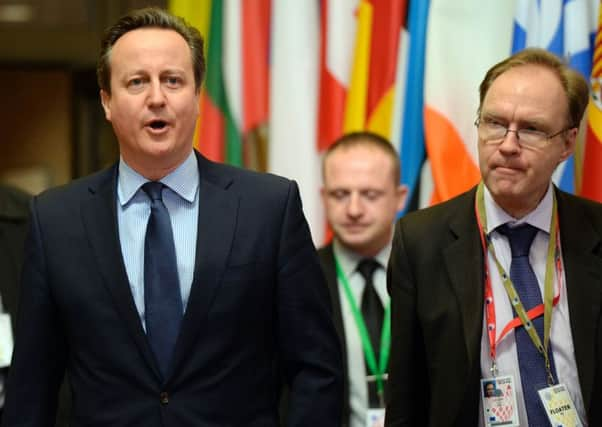Leader comment: EU ambassador quitting is bad news for Britain


Apart from adding to the appearance that the government is still in deep disarray over its Brexit negotiations, the loss of Sir Ivan is bound to have an impact. He is a hugely experienced professional who knows the inner workings of the EU – and, more importantly, the other member states know him and are used to doing business with him.
Sir Ivan had overall responsibility for the UK’s team which represents the nation in negotiations that take place in Brussels. It will be hard to find somebody at that skill level – particularly if the government keeps to its schedule and triggers Article 50 at the end of March, because negotiations would be expected to begin shortly after that. And let us not forget that there is already a warning over being able to wrap those negotiations up in the allotted time.
Advertisement
Hide AdAdvertisement
Hide AdTo take part in those negotiations – thought by many to be the most complicated set of talks Britain has experienced in living memory – somebody else will have to get up to speed, and that should mean postponing the beginning of the negotiations to allow them to do so. But Prime Minister Theresa May has set her nose against any delay, and as we have seen from the furore surrounding Sir Ivan’s departure, she comes under great pressure from her own party to simply get on with the talks. The difficulty with putting someone with less experience who is not properly briefed in the role is it hugely magnifies the risks of bad decisions early on, which could mean a poorer Brexit deal for the UK. The most likely outcome is that whoever takes over will be in the post by March and begin negotiations – but they will inevitably take longer.
And that is based on finding someone who has the skillset – and, more importantly, who is willing to take the task on. Given the manner of Sir Ivan’s departure that might be a considerable barrier.
It was reported that Sir Ivan (see above re experience etc) told government ministers that it was possible that any trade deal with the EU could take up to ten years to get in place, and that even then it may fail to get ratified by member states.
For having the temerity to give his honest view in a straight and transparent manner, Sir Ivan was accused of being a pessimist and being anti-Brexit. Ukip MEP Nigel Farage said that Sir Ivan’s stance showed the diplomatic service “just doesn’t accept the vote”. What nonsense. What it shows is Mr Farage and others of his ilk are refusing to accept the consequences of the vote,
Finding another senior civil servant willing to take the job knowing he cannot give his opinion honestly will be even harder to find.